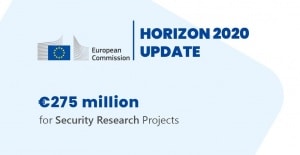Why invest fully in it?
- Negociating the grant agreement is your first task after receiving notification of funding. Although this may seem purely administrative, especially for a researcher, it is crucial that you get actively involved, as this process reveals the real challenges of managing a European grant and will help you understand the mechanics of research grant management.
The role of the portal and digital tools
- For Horizon Europe projects, the grant preparation page on the Funding & Tenders Portal (F&T Portal) is your preferred starting point. It lists all the steps to follow, with detailed guides and screenshots.
- The process is entirely digital. You will use the ‘How to’ page to follow each step required in the online space.
Finalise the Description of Action (DoA)
- Following discussions with your Project Officer (PO) – the project’s ‘prescriber’ – you will draw up the final version of the DoA, consisting of general information about the project (scientific and technical content, tasks to be carried out, by whom and when), which will be appended to the Grant Agreement (GA).
- The DoA incorporates your initial scientific proposal, structured as follows:
– Part A: participants, work packages, working time (in person-months), deliverables (charter, prototype, etc.), milestones (deadlines), critical risks and evaluation mechanisms.
– Part B: sections on excellence, impact, implementation, and ethics/safety if necessary in order to verify consistency and relevance - The content of your proposal must remain intact, except in the case of clarifications requested by the PO.
Administrative steps between coordination and signing
- The usual goal is to finalise the signing of the agreement within 3 to 4 months.
- During this period, you must confirm that each partner has been validated in the register of participants, has appointed its legal representative (LEAR), has signed the Declaration of Honour (DoH) and has formally adhered to the agreement via the F&T forms.
- At the same time, the Consortium Agreement must be drawn up, which is essential for defining the internal governance of the project and specifying the terms of collaboration between the various project partners.
Understanding the grant agreement in its entirety
- This work helps you understand that managing a Horizon Europe grant goes far beyond science: it includes achieving the expected impact, communication, technology transfer, and training, depending on the project’s objective.
- The signing of the GA formalises a contractual relationship between the consortium and the Commission: each beneficiary is responsible for the rigorous application of the financial, legal and administrative clauses.
- It is therefore essential to read the agreement carefully, particularly Article 5, which specifies the type of funding (actual costs, unit grant or lump sum), and Article 6, which describes all the rules for the cost declarations (if this article is not implemented, costs are systematically rejected). Referring to the Annotated Grant Agreement (AGA) aims to help Horizon Europe beneficiaries understand the often-complex agreements they must sign before starting a project.
Drawing on previous experience
- If you have already managed a grant under Horizon 2020, it is useful to identify the differences in structure and content with Horizon Europe, in order to avoid mistakes out of habit.
- Remember that the agreement is signed by a legal entity (your institution), not by an individual: it is a legal representative (e.g. a dean, vice-dean, director) who commits your organisation.
Conclusion: why getting trained is essential?
Understanding the grant agreement (DoA and GA) is essential not only to get your project off to a good start, but also to understand the overall obligations of the funding. This ensures solid implementation in compliance with all European rules.
However, even with experience, training remains essential in order to:
- fully understand each clause of the agreement,
- avoid administrative or financial errors that could compromise the funding,
- optimise the funds received by applying best practices,
- anticipate audits and effectively manage contractual risks.
Training ensures that nothing is overlooked: from cost eligibility to governance, reporting and interaction with Project Officers. This comprehensive knowledge ensures that your project is managed in a compliant, smooth and efficient manner.
Customised training with European Fund Management Consulting (EFMC)
- EFMC (European Fund Management Consulting), founded in 2014 by former European Commission auditors, is now one of Europe’s leading providers of financial management services for Horizon Europe and H2020 projects.
- The organisation offers specialised training in post-award administrative and financial management, covering topics such as:
– cost eligibility
– identifying costs categories and preparation of the Financial Statement
– administrative obligations
– compliant budgeting
– preparing for audits carried out by the European Commission
– compliant reporting simulation and mastery of the Annotated Grant Agreement (AGA)
Thanks to its team of experts, EFMC guarantees a high level of quality: over 95% satisfaction among participants, successful real audits and over 76% of proposals accepted.
In short, training with EFMC means investing today in rigorous, reliable and optimised management of your European grants, ensuring the complete success of your scientific projects.
Find our training courses: https://efmc.eu/training/



